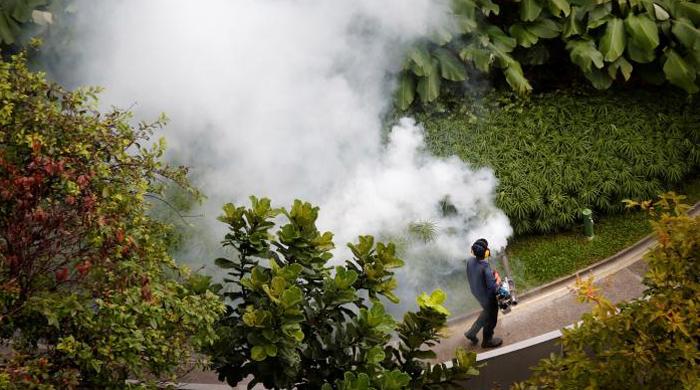Singapore confirms 41 cases of locally transmitted Zika virus
August 29, 2016

Singapore has confirmed 41 cases of locally transmitted Zika virus, mostly among foreign construction workers, and said it expected more cases to be identified.
All but seven of those infected had fully recovered, the Health Ministry and the National Environment Agency said in a statement on Sunday. The seven remain in hospital.
On Saturday, authorities confirmed a 47-year-old Malaysian woman living in southeastern Singapore as the city-state's first case of a local transmission of the virus.
Zika, carried by some mosquitoes, was detected in Brazil last year and has since spread across the Americas. The virus poses a risk to pregnant women because it can cause severe birth defects. It has been linked in Brazil to more than 1,600 cases of microcephaly, where babies are born with small heads.
Singaporean authorities said they tested 124 people, primarily foreign construction workers employed on a site in the same part of Singapore. That site has been ordered to halt work, and workers' dormitories are being inspected. Seventy-eight people tested negative and five cases were pending. Thirty-four patients had fully recovered.
Four Singaporean men had developed symptoms of the virus in the past week and were hospitalized on Saturday. It was not clear where the foreign workers were from or when their cases were detected. Singapore hosts a large contingent of workers from the Asian subcontinent.
None of those infected had traveled recently to Zika-affected areas. "This confirms that local transmission of Zika virus infection has taken place," the statement said.
The ministry "cannot rule out further community transmission since some of those tested positive also live or work in other parts of Singapore," the statement said. "We expect to identify more positive cases."
The World Health Organization said in a statement on Sunday that it did not know "which lineage of Zika is circulating" or "what the level of population immunity is to this lineage of Zika in Asia."
"It is important for countries to remain vigilant through surveillance for cases, to continue vector control, to inform people about Zika and how they can protect themselves, and to have the health system ready to supply the services needed to prevent and manage Zika and its consequences," the group told Reuters.
Singapore, a major regional financial center and busy transit hub, which maintains a constant vigil against the mosquito-borne dengue virus, reported its first case of the Zika virus in May, brought in by a middle-aged man who had been to Brazil.











